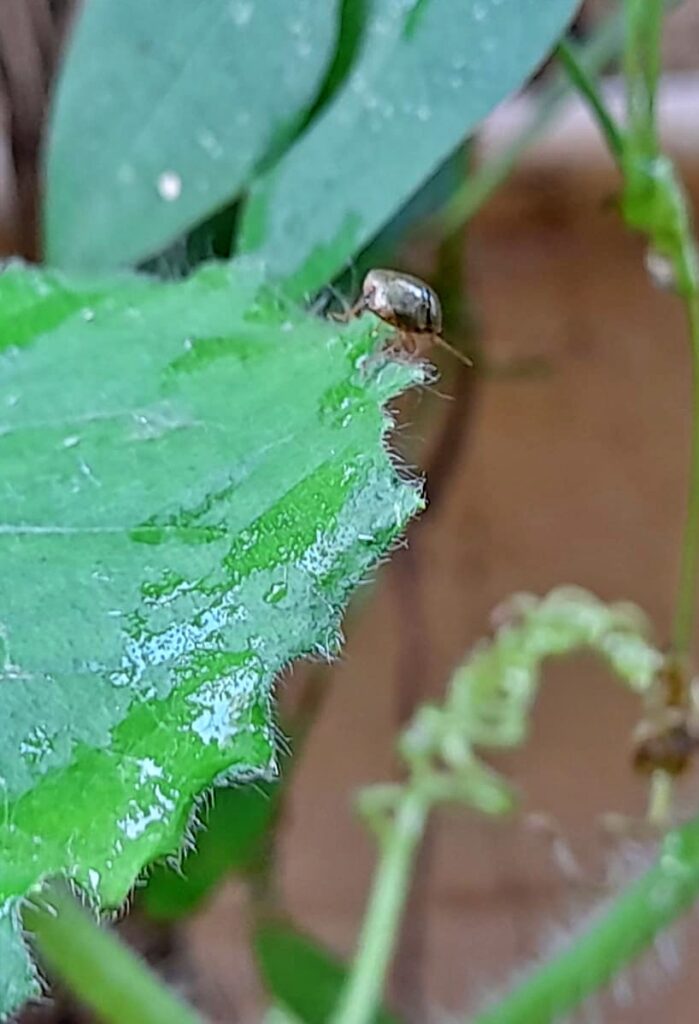How to control aphids naturally in your garden.

Aphids are pesky insects that drain the life out of your plants eventually killing them. They are also called greenfly and blackfly. There are about 5000 species of aphids among which 400 of them are found in food or fibre crops. Aphids reproduce rapidly and increase in large numbers within a few days. This is because aphids can reproduce without males. Young aphids mature rapidly and give birth to nymphs that are already pregnant. This way of reproducing is asexual and called as parthenogenesis. Aphids form a symbiotic relationship with ants. Aphids secrete honeydew which is consumed by ants. Ants in turn protect them from predators. Aphids must be controlled during the initial stages or else it becomes difficult to get rid of them from your gardens.
Here is how you can identify them
Check the underside of leaves or check for plant leaves for curling, yellowing of leaves and stunted growth. Spraying the insects with a large stream of water is one way to get rid of them.
How to control aphids
1. Neem Oil
Using neem oil on leaves inhibits the life cycle of the larvae. If you use it on the leaves it can also repel the beneficial insects. It’s best to use it with caution. You can use it by referring back to the product. Dilute neem oil with water and a few drops of liquid dish soap. Transfer it to a spray bottle and use it on your plants.
2. Insecticidal Soap
Mix one tablespoon of dish wash soap with one quart of water. You can use Castile soap. Castile soap is a vegetable soap free from animal fats and synthetic ingredients. It’s best to test this solution on the plant’s leaves before you use them. Spray this solution on the leaves and wait for a few days. If the leaves remain unaffected you can use this solution on aphid-affected plants.
3. Cayenne pepper
Take one quart of water and add a teaspoon of dish soap and a pinch of cayenne pepper. Use this solution on your plants.
4. Diatomaceous Earth
Simply sprinkle this powder on the aphids. This is a non-toxic organic material that dehydrates aphids. Avoid using this on blooming flowers as it can kill pollinators such as bees and butterflies. Wear gloves and a mask when you are using DE. Don’t allow children and pets to come into your garden when you add DE.
5. Tomato leaves
You can also use tomato leaves as a pesticide. Tomato leaves contain a compound that aphids dislike. Take 2 cups of chopped tomato leaves and add it to 2 cups of water. Soak it overnight. Then strain the liquid using a cheesecloth. Then dilute it before you use it on your plants.
Some of the other ways to control aphids in your garden are by companion planting and by introducing beneficial insects.
Make sure your garden is attractive to beneficial insects such as ladybugs, lacewings and parasitic wasps. These insects feed on aphids and help to control these insects.
6. Practise Companion Planting
Companion planting is a technique where two or more plants are grown next to one another. Growing plants such as Nasturtium, chives, garlic, marigolds, dill, cilantro and catnip can repel aphids.
Read more:
- How to get rid of mealy bugs in your garden.
- How to get rid of whiteflies in your garden.
- How to get rid of thrips in your garden.
- How to treat powdery mildew in your plants.
